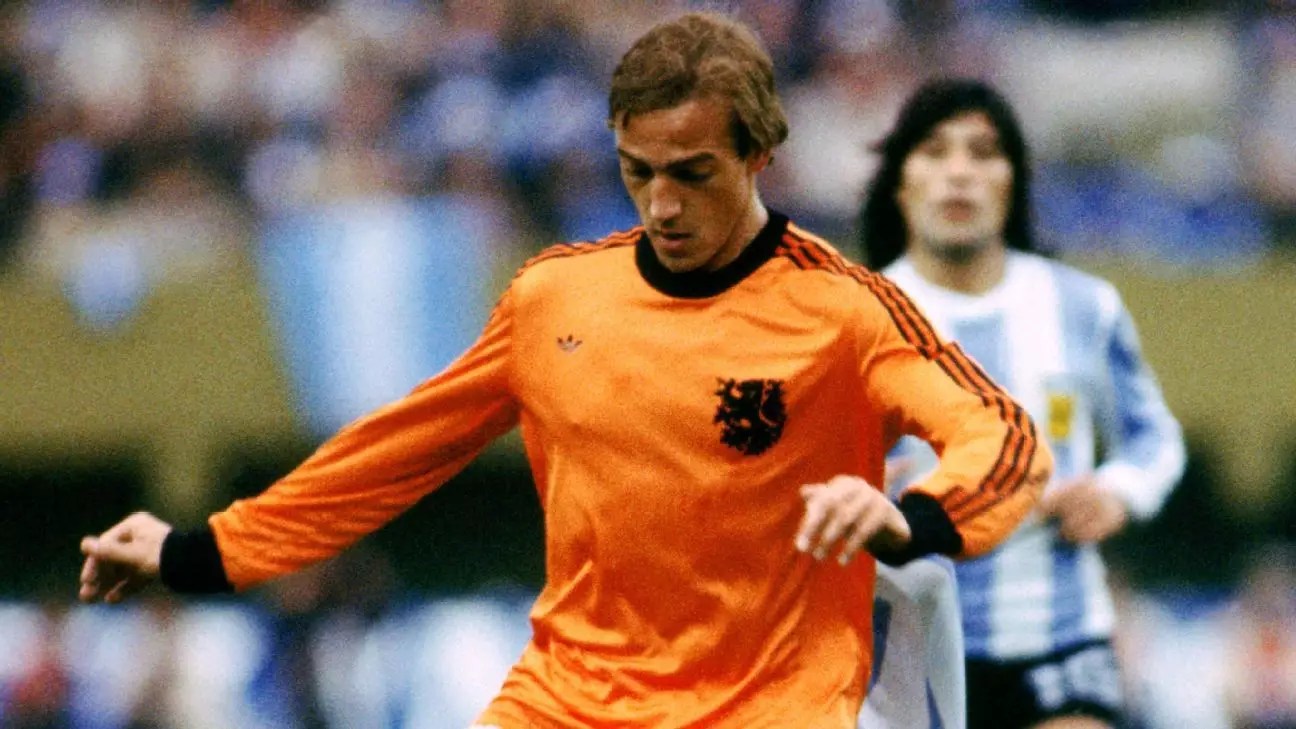Johan Neeskens, a pivotal figure in the golden era of Dutch football, has passed away at the age of 73. The news of his death emerged following a coaching project organized by the Dutch football association (KNVB) in Algeria, yet the specific cause remains undisclosed. This tragic event is a stark reminder of the impermanence of life and the indelible mark one can leave behind. Neeskens was not just a remarkable midfielder; he was a representative of excellence, compassion, and the spirit needed for true sportsmanship. His passing resonates deeply with the countless fans and aspiring young athletes who admired his contributions to the sport.
Neeskens’ professional journey is embroidered with moments of brilliance and profound disappointment, especially in the context of World Cup competitions. He played crucial roles in two finals, both of which left the national team and its supporters in tears. The 1974 World Cup final is perhaps the most iconic moment of his career. Neeskens scored an early penalty, leading the Dutch team to a temporary advantage against West Germany. However, that moment of glory quickly vanished, as the team succumbed to a devastating 2-1 defeat. Reflecting on that match, he poignantly stated, “The most beautiful football doesn’t always win.” His statement underscores a common theme in sports: sometimes, even the most skillful teams fall short—a reality that resonates with athletes across every discipline.
Four years later, Neeskens found himself in a similarly heartbreaking situation. The Dutch team again entered the final only to lose, this time to Argentina in a gripping match that extended into extra time. These losses emphasized the bittersweet narrative of his celebrated career. Despite the heartbreak on the world stage, Neeskens’ prowess and contributions to football are celebrated and revered, epitomizing the elegance of the “Total Football” philosophy that defined an era.
Before his international fame, Neeskens carved out a legacy at Ajax, where he was integral to a team that dominated European football during the early 1970s. A three-time European Cup winner, he became a part of Ajax’s rich history, showcasing his exceptional skills alongside other football legends. Following his successful tenure in Amsterdam, he transitioned to Barcelona, and later to the New York Cosmos, where he continued sharing his talent and experience with fans around the globe.
Beyond the pitch, Neeskens cultivated a reputation centered around teamwork and collective success. In his own words, he emphasized, “The collective, that’s what it’s all about.” His belief in the power of unity remains a pivotal lesson for aspiring athletes. It was not just about individual accolades; it was about how individuals synergize to become champions. This philosophy is timeless, transcending sports and applicable to anyone pursuing excellence in their endeavors.
The impact of Johan Neeskens extends far beyond his playing days. As an assistant coach for both the Dutch and Australian national teams, he shared his knowledge and wisdom with a new generation of players, perpetuating his legacy. The confirmation of his passing left a void in the football community, eliciting heartfelt tributes from clubs like Ajax and Barcelona, who recognized his contributions to their identities as teams.
As fans and players navigate this bittersweet moment, it is essential to reflect on the profound influence Neeskens had on the sport. He wasn’t merely a footballer; he was an embodiment of the passion and determination that defines the game. His life and career serve as a reminder that true greatness is not solely measured by victories but by the spirit, unity, and respect brought to the field.
Johan Neeskens leaves behind a multifaceted legacy—one that intertwines triumph, heartbreak, and the profound joy of football. His story is eternally etched in the annals of sport, inspiring everyone who dares to dream and strive for greatness. As we mourn his passing, we celebrate his life through the beautiful game he loved so dearly.


Leave a Reply